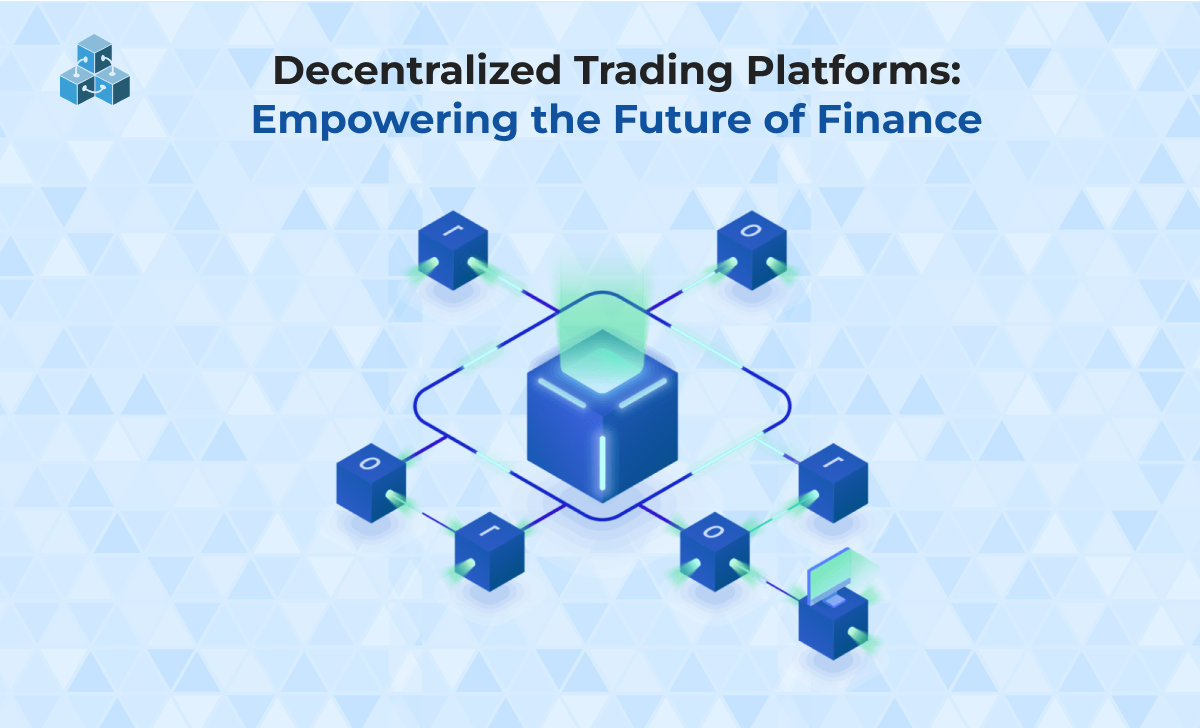In this growing world of blockchain technology, cryptocurrency trading is growing hand-in-hand. The battle between centralized and decentralized exchange has become a common topic of constant debate. Both these two distinct trading platforms have different philosophies, advantages, drawbacks, and challenges. They are creating a dynamic landscape of how traders buy and sell digital assets and shape the future of crypto trading.
In this blog, we dive deep into the difference between a centralized and decentralized exchange, its benefits, challenges, and future trading dominance.
Understanding Centralized Exchanges (CEXs)
Centralized Exchanges are the platforms operated by a centralized entity that acts as an intermediate between buyer and seller. Users trade cryptocurrencies facilitated by the exchange operator. The exchange holds control of user funds and facilitates trading via order books. Centralized exchanges are user-friendly, with high liquidity and a wide range of trading pairs. Users must entrust their funds to the exchange, which exposes them to potential risks and control by a single entity.
Advantages of Centralized Exchanges
- Liquidity:- Centralized exchanges offer high liquidity due to their established and large user base, which allows efficient trading even in volatile markets.
- User-Friendly Interface:- Centralized exchanges are user-friendly and easy to use. It makes them suitable for beginners and experienced traders and offers customer support.
- Variety of Assets:- Centralized exchange offers a variety of assets with a wide range of cryptocurrencies, offering traders the freedom to explore other options.
- Fiat Integration:- Centralized exchanges support fiat-to-crypto trading, which allows users to buy crypto directly with traditional currency.
- Customer Support:- Centralized exchanges offer customer support for technical and account issues.
Disadvantages of Centralized Exchanges
- Custodial Control:- The user on centralized exchange needs to trust the platform to hold their funds, which makes them weak to hacks and vulnerability issues.
- Privacy Concerns:- Users must provide their personal information for registration, which can raise privacy concerns within the crypto community.
- Single Point of Failure:- Centralized exchanges are easy to outrage, and technical glitches and security breaches could disrupt trading.
Understanding Decentralized Exchanges
Decentralized exchanges operate without any central authority, as the name suggests. It functions on blockchain technology and smart contracts, enabling peer-to-peer trading directly from the user’s wallet. DEX emphasizes security and privacy as the user has complete control over their funds. DEXs typically have lower liquidity than CEXs but promote blockchain principles of decentralization, transparency, and self-custody.
Advantages of Decentralized Exchanges
- Enhanced Security:- Decentralized exchange eliminates the need to trust a third party with your funds, reducing the risk of hacks and providing users with control over their funds.
- No Intermediate:- DEX is a decentralized platform and facilitates peer-to-peer trading, reducing intermediates involved.
- Censorship Resistance:- DEX is less susceptible and follows the principles of blockchain technology, allowing users to trade without the risk of censorship.
- Privacy:- It offers enhanced privacy to users by requiring minimal personal information from the user.
Disadvantages of Decentralized Exchange
- Liquidity:- DEX has lower liquidity than CEX, which can result in high spreads and slippage.
- Complexity:- DEX can be complex to new users as it requires blockchain technology knowledge and needs for wallet integration on the platform.
- Limited Asset:- DEX offers a limited range of trading pairs and cryptocurrencies compared to CEX.
Future Trends
The new developments and innovations will help shape the future of trading in the financial industry. Centralized and decentralized exchanges tend to coexist and thrive for development purposes. There is rapid growth in the hybrid solutions that aim to benefit from both models. Centralized exchanges evolve with enhanced security features while maintaining regulatory compliance and offering a seamless user experience. On the other hand, decentralized exchanges scrutinize ways to improve liquidity via technology advancements and interoperability.
The demand for safer and private trading has led to a significant boost of decentralized finance and encouraged the adoption of DEX. With the increase in blockchain adoption and its advances, it is possible that the emerging hybrid model benefits from both centralized and decentralized exchange.
Conclusion
The ongoing battle between centralized and decentralized exchange is the most crucial aspect of the crypto ecosystem. Each model uses a different perspective for different user preferences and needs. Centralized exchanges offer liquidity and user experience. On the other hand, decentralized exchange offers security and self-custody. With the evolving crypto space, the competition between these two drives them to adapt and improve. Ultimately, this never-ending battle for crypto trading will shape the crypto ecosystem, making it exciting for the entire blockchain community.
BlockCoders is a decentralized exchange development company specializing in creating and launching the DEX platform. Leverage the power of blockchain technology with us for your dream project. Connect with us and let us know about your project requirements.
 info@blockcoders.pro
info@blockcoders.pro
 Our global presence :
Our global presence :
 |
|
 |
|
 |
|


